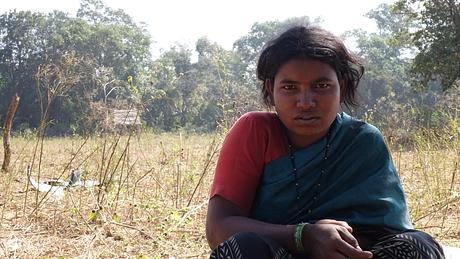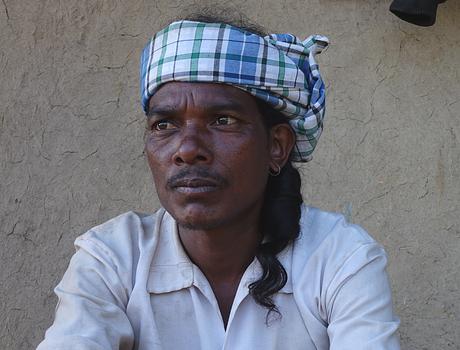India: Tribe faces eviction from tiger reserve – but uranium exploration approved
June 15, 2017

This page was last updated in 2017 and may contain language which is now outdated.
Officials in India are threatening to evict a tribe from a tiger reserve in the name of conservation – but have just approved uranium exploration in the same reserve. The move has angered campaigners, who accuse the authorities of hypocrisy.
The Chenchu tribe in Amrabad tiger reserve have pleaded to be allowed to stay on the land which they have been dependent on and managed for millennia.
They say: “The forest department is planning to evict us from this place. We do not want to go anywhere. We protect our forest. If we go outside it is like taking a fish out of the water, it will die… But now the government, for their own profit, is separating the Chenchu from the forest, this is like separating children from their mothers.

“The government is selling the forest to mining companies. If we go to the plains areas we will become addicted to alcohol and we will drink and die. In the future the Chenchu will only be seen in photographs and videos.
“We live in the forest and we will die in the forest. The forest is our mother and our life. Wildlife is our life, without wildlife we cannot live.”
Indian authorities justify their forced evictions of tribal people – which are illegal according to national and international law – on the grounds that any human presence in the reserves is harmful to tigers. However, in many tiger reserves in India, fee-paying tourists are allowed to visit in large numbers, and road-building, mineral exploration and even mining have all taken place.

Background briefing
- The Chenchu are just one of many Indian tribes facing eviction from their ancestral land. Many Baiga communities have already been evicted in central India, either thrown out to fend for themselves, or moved to government resettlement camps where living standards are frequently dire.
- Indian law requires any evictions to be voluntary, and communities are supposed to be compensated. However, tribal people are rarely informed that they have a guaranteed right to stay, and are often threatened. Compensation money is rarely sufficient to allow them to adapt to life outside the forest, and people often don’t receive what they were promised.
- Amrabad tiger reserve is in Telangana state in southern India.
- The Chenchu lived by hunting and gathering in southern and central India for millennia, until hunting was banned in the 1970s. Government efforts to make them take up farming have been largely resisted by the tribe themselves.
- The Chenchu have an incredible knowledge of their forest and the animals they share it with. They collect 20 different types of fruit and 88 different types of leaves. They see all the animals as both their relations and as gods. Their customs dictate that they should never take more than they need from the forest or waste anything. One Chenchu said: “If outsiders come inside the forest, they will cut all the trees and take away all the fruits; we don’t cut the trees and we take just the fruits we need.”
 © Wikimedia
© Wikimedia
Survival’s Director Stephen Corry said: “This is the ultimate in hypocrisy: the authorities want to evict the tribespeople who have managed this environment for millennia, on the pretext that tiger numbers will suffer if the people stay, but then allow in uranium prospectors. It’s a con. And it’s harming conservation. Tourists to Amrabad Tiger Reserve should realize they are supporting a system which could lead to tribal people, the best conservationists, being illegally evicted from their ancestral homelands, and that uranium mines might one day take their place.”



